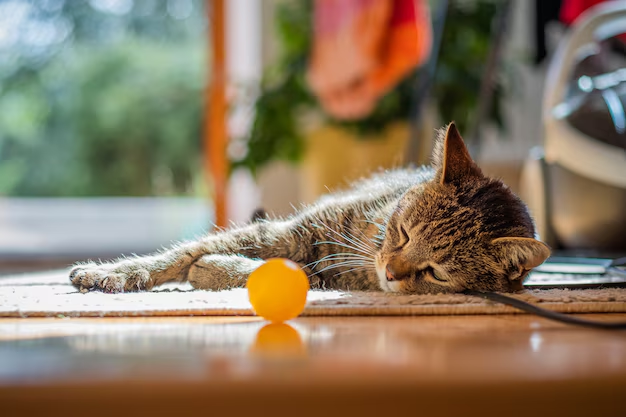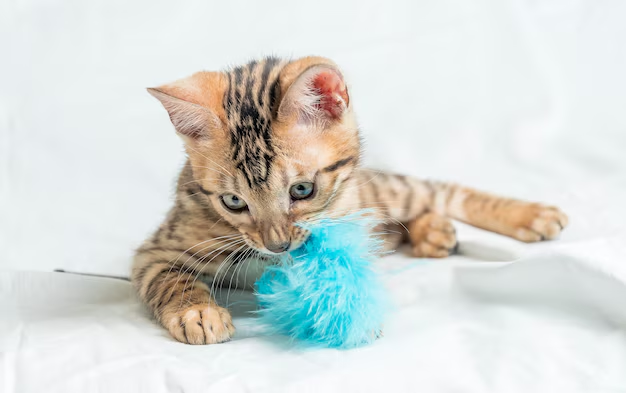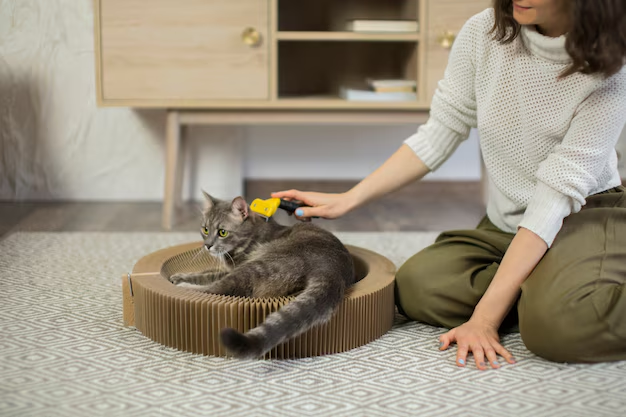Mothballs are commonly used to repel moths and other insects in closets, storage spaces, and clothing. However, while they might seem like an easy solution for pest control, they can pose a serious health risk to cats and other pets. If you’re wondering whether moth balls are safe for your feline friend, the short answer is no—they are not safe.

Here’s why moth balls should be kept well away from your cat:
1. What Are Moth Balls Made Of?
Moth balls are usually made from two common chemicals:
- Naphthalene: A strong-smelling, toxic chemical derived from coal tar or petroleum. It’s the most common ingredient in traditional moth balls.
- Paradichlorobenzene: A chemical that has a similar moth-repelling effect to naphthalene. It’s typically found in newer, “safer” versions of moth balls, but it’s still harmful to pets.
Both of these chemicals are harmful to cats if ingested or inhaled.
2. Health Risks of Moth Balls to Cats
If a cat comes into contact with or ingests moth balls, they can experience serious poisoning, leading to a range of health issues. Here’s how moth balls can affect your cat:
- Ingestion: Cats are naturally curious creatures and might chew on or eat moth balls if they’re within reach. Even small amounts can cause serious poisoning, with symptoms like:
- Vomiting
- Diarrhea
- Loss of appetite
- Lethargy
- Tremors or seizures
- Difficulty breathing
- Liver or kidney damage
- Inhalation: Moth balls release fumes as they dissolve in the air. If your cat breathes in these toxic fumes over time, they could develop:
- Respiratory issues
- Nasal irritation
- Headaches
- Dizziness
Both naphthalene and paradichlorobenzene are highly toxic when inhaled or ingested by cats. In severe cases, moth ball poisoning can be fatal.
3. Symptoms of Moth Ball Poisoning in Cats

If you suspect that your cat has ingested or been exposed to moth balls, it’s important to seek veterinary attention immediately. Common symptoms of moth ball poisoning include:
- Drooling or foaming at the mouth
- Gastrointestinal upset, including vomiting or diarrhea
- Loss of appetite
- Tremors or muscle twitching
- Changes in behavior (e.g., lethargy, restlessness, or unusual aggression)
- Respiratory distress (difficulty breathing, coughing, or wheezing)
- Severe lethargy or collapse (in extreme cases)
If you notice any of these symptoms, contact your veterinarian or an emergency animal poison control center immediately.
4. What Should You Do if Your Cat Comes Into Contact with Moth Balls?
If you believe your cat has ingested or been exposed to moth balls, time is of the essence. Here’s what you should do:
- Call your vet or a pet poison hotline: They can provide immediate advice and help you determine the severity of the situation.
- Do not induce vomiting without veterinary guidance: Vomiting could cause additional harm, depending on the amount of the moth ball consumed and the severity of exposure.
- Bring the moth balls with you: If possible, take the packaging or a sample of the moth ball to the vet. This will help them assess the specific chemicals involved and how best to treat your cat.
5. Alternatives to Moth Balls for Pet Owners

If you’re looking for ways to repel moths or insects in your home without risking your cat’s health, there are several safer alternatives:
- Cedar chips or cedar blocks: Cedarwood has a natural moth-repelling effect and is safe for cats. You can place cedar blocks in your closets or storage areas instead of moth balls.
- Essential oils: Some essential oils, like lavender, eucalyptus, and peppermint, can repel moths. However, be cautious with essential oils around cats, as some oils (like tea tree oil) can be toxic. Always use oils in moderation and ensure they are properly diluted.
- Herbal sachets: You can create your own moth-repelling sachets using dried herbs like rosemary, thyme, and lavender, which are safe for cats.
- Keep the environment clean: Regularly clean and vacuum your home, especially around closets and storage areas, to help prevent moths and other pests.
6. Final Thoughts
Moth balls are not safe for cats, and their use in homes with pets should be avoided at all costs. The chemicals in moth balls are toxic and can cause serious harm if ingested or inhaled. If you suspect your cat has been exposed to moth balls, seek veterinary care immediately. There are safer, more effective alternatives for pest control that won’t put your cat at risk.
Always remember to keep any potentially dangerous substances, including moth balls, out of reach of your curious feline friend to keep them safe and healthy. For more cat-related products and cat care guides, please check out our website!

